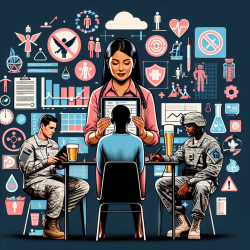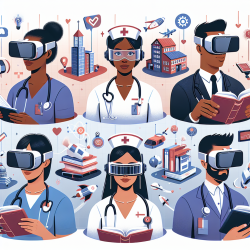During the COVID-19 pandemic, many psychotherapists had to transition from traditional face-to-face therapy to online therapy. This shift raised questions about the effectiveness of online therapy and its impact on therapists' clinical skills and in-session feelings. A recent pilot study titled "Psychotherapists’ perception of their clinical skills and in-session feelings in live therapy versus online therapy during the COVID-19 pandemic" offers valuable insights that can help practitioners improve their skills in online therapy settings.
Key Findings from the Study
The study, conducted by Messina and Loffler-Stastka (2021), involved 29 therapists who compared their experiences in live therapy and online therapy. The researchers focused on three main dimensions:
- Perception of clinical skills
- Perception of difficulties in practice
- In-session feelings of flow, boredom, and anxiety
Clinical Skills
Therapists reported significantly higher scores of clinical skills in live therapy compared to online therapy. This included aspects such as:
- Effectiveness in engaging patients in a working alliance
- Feeling 'natural' and authentically personal
- Mastery of techniques and strategies
- Understanding the moment-by-moment process in sessions
- Communication of understanding and concern to clients
These findings suggest that therapists feel more competent and effective in live therapy settings.
In-Session Feelings
The study also found differences in therapists' in-session feelings. In live therapy, therapists experienced more flow-related feelings and less boredom compared to online therapy. However, there were no significant differences in feelings of anxiety between the two settings.
Implications for Practitioners
The findings highlight the need for therapists to adapt their skills to online therapy settings. Here are some practical steps that can help:
- Training: Engage in specialized training programs focused on online therapy techniques to enhance clinical skills.
- Technology: Familiarize yourself with the technology used for online therapy to reduce technical difficulties and improve the flow of sessions.
- Engagement: Develop strategies to engage clients effectively in an online setting, such as using interactive tools and maintaining eye contact through the camera.
- Self-Reflection: Regularly reflect on your online therapy sessions to identify areas for improvement and adapt your approach accordingly.
Encouraging Further Research
While this pilot study provides valuable insights, more research is needed to fully understand the nuances of online therapy. Practitioners are encouraged to contribute to ongoing research efforts by sharing their experiences and participating in studies focused on online therapy. To read the original research paper, please follow this
Psychotherapists’ perception of their clinical skills and in-session feelings in live therapy versus online therapy during the COVID-19 pandemic: a pilot study.










